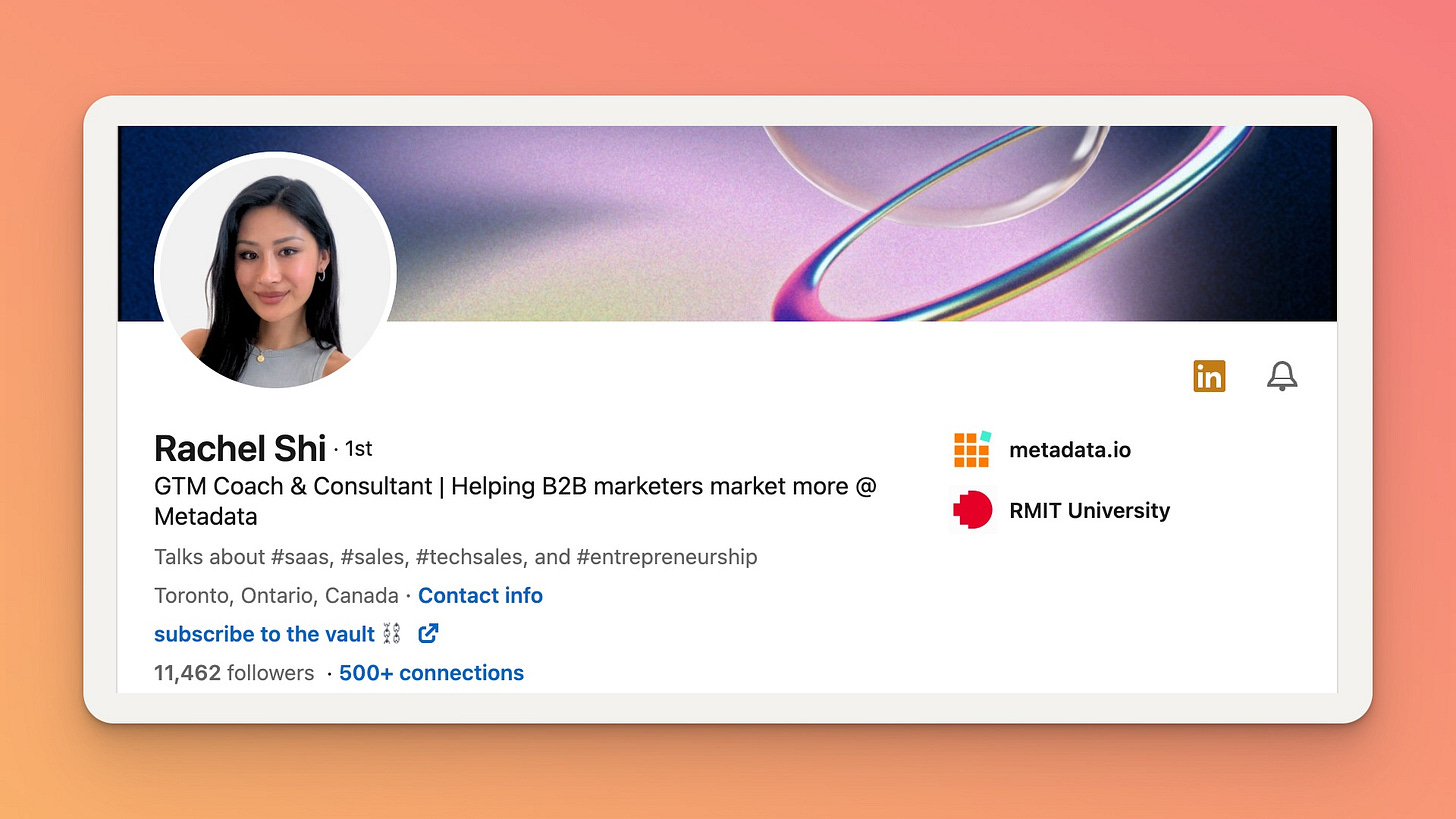Early Exit #28: How To Negotiate Your Rates
I called the best sales person I know to teach me how to improve my negotiation skills.
You’re reading Early Exit Club — a newsletter about leaving the 9-5 workforce to build a $20k/month solo business by Nick Lafferty.
Last time: How much I made from Loom’s $1 billion acquisition
Next time: How to define your personal positioning statement
You sent a proposal over to a new prospective client, now all they need to do is sign the contract and you’ll be good to go.
Not so fast.
They asked if you can lower your rates to fit into their budget. What do you do?
I’ve found myself in this situation many times over the last 10 months, and the first time it happened I did a pretty shit job of negotiating.
I honestly didn’t negotiate at all. I needed the money so I just said yes.
I called a friend to help me avoid repeating my past mistakes, someone who has spent the last 8 years of their career prospecting, negotiating, and closing deals.
But first, here are two full time marketing jobs that opened up this week.
New Marketing Jobs
Float is hiring a Senior Growth Marketer (fully remote). You’d be joining a small but mighty team full of brilliant, driven, and kind people. Tell Siobahn and Fio that I sent you 😎
Our mission over the next 12 months is to build the largest cheer squad of people planners, and we’re hiring a Senior Growth Marketer to help us get there. If you're a data-driven growth expert with experience leading top-of-funnel acquisition programs in SaaS then apply below.
I’m helping a friend hire their first marketer for a Stealth Consumer Electronics Startup:
Seeking a first marketing hire for a stealth consumer electronics startup with an incredible story and unfair market advantage based on their founding team and partnerships. This is the earliest possible stage, you would be crafting and executing the launch initiatives, leading growth marketing, and defining their brand. If your GameBoy or PSP were ever counted among your best friends, this role is especially for you.
Meet my friend, Rachel Shi
Rachel is the top performing AE at Metadata, a tool I was evaluating at Loom when we were looking to streamline the efficiency of our paid ad campaigns. And she is without a doubt the best sales professional I’ve ever worked with.
I asked her to hop on a call with me to talk through an active negotiation I was having with a prospective client. This post is full of her advice on how to negotiate as a freelancer, which starts before you even talk about price.
By the way, she sells a kickass course for other sales pros that you can check out here.
Start With A Pre-Negotiation Check List
Make sure you’ve checked these three boxes before starting a negotiation:
Qualify your prospects
Know your walk away point
Don’t feel pressured
1) Qualify your prospects
I think a lot of people get into the mistake of talking about price when you haven't even decided if you're a good fit to work for each other. At which point you're competing on price and that's probably not the right way you wanna start off a working relationship.
As part of your sales process, you should qualify your prospective client before talking about price. This seems obvious but I’ve talked with freelancers who customize their offer to best fit prospective client’s needs, which means they end up with clients who all need vastly different things from you.
I think that’s backwards. Build an offer around your unique value to help specific types of clients and reject anything that doesn’t fit. I’ll be talking more about how to do this next week!
Drill down into their needs and ask questions to make sure you really understand. Sometimes a client says they need help with one area but they really need help somewhere else, they just don’t know it yet.
It’s ok to pass on a deal that isn’t a good fit for you! I’ve done this several times, and often a better deal comes into frame a short while later that I wouldn’t have been able to say yes to otherwise.
2) Know your walk away point
If you used my free Freelance Rate Calculator then you should have an idea on the minimum amount you should be charging.
You cannot go below that amount, and if doing that is the only way to sign that client then maybe it’s a signal to pass this opportunity to another freelancer in your network.
And do your best to increase your minimum price every year.
3) Don’t feel pressured to immediately make a decision
You might be having this conversation on the phone and you get a price thrown at you. Sometimes people freak out and just say, yes, without without feeling really comfortable with that price point.
Always feel like that you can just put a pause on the conversation. You do not have to accept right now.
Give yourself some time to think about it and get back to them. Rachel recommends using a response like this:
Thanks for sharing that. Let me take that away and we can reconvene at another point to sort of make a decision here.
Now let’s talk about the actual negotiation.
Negotiation Framework: Expanding The Pie
Price is only one of the factors that make up a good deal. Rachel recommends thinking of this as gives and gets.
If you decide to give a reduction in price, then you should work on getting something back that you’re happy with.
Work on expanding the pie by modifying other terms of the deal like:
Contract duration (maybe you agree to a reduced price in exchange for a longer contract)
Payment terms (maybe you ask to get paid up front, or you move from Net 30 to Net 15 billing)
Asking for a case study
Asking for two referrals over email
Your unique situation will determine which of those additional terms is more valuable to you. Maybe you have a client on Net 45 billing so you’re looking to balance that out with a new client on Net 15.
Maybe you’re in the fortunate situation of having several high paying clients and you want to experiment with asking for equity now.
Spend time thinking about this before your next client proposal so you have an idea of what you want to ask for.
Isolate price resistance
Even if a prospect references price as a limiting factor to getting the deal over the line, it’s not always about that.
There are a few reasons that could be driving their price resistance:
They don’t fully understand your value
There are logistics problems with the budget (e.g. they need to stretch your cost over two fiscal years)
They’re trying to get a good deal
The best thing you can do to isolate price resistance is to ask why.
I always coach people to ask why. Simply say “I’m curious as to why you're asking that?” If there is a good faith negotiation then people are perfectly fine to share the reasons as to why.
Here are some things they might say to you.
Understanding the value
Sometimes clients are not sold on the actual value that you're going to be able to provide, hence why they're asking for a lower price.
Take this as an opportunity to circle back to your value proposition and reiterate things like:
The results you’ve driven for other clients (which is why case studies are so important)
Your experience in their specific industry or with their specific problems
How they found you in the first place (did they see your content on LinkedIn? get referred to you by a former client?)
If you’ve gotten this far then it’s highly likely your client wants to work with you. Remind them of your worth and that you’re only able to take a limited amount of clients at one time.
Billing Logistics
Sometimes there are logistical hurdles to pricing conversations:
They need to stretch your cost across two fiscal years
Maybe they can pull unused budget from somewhere else
There are all kinds of creative ways that you can work around that while still keeping the full amount budget.
Try asking questions to isolate if there are logistical hurdles like that and ask honest questions “how can we get creative to make this work?”
Do you negotiate your rates?
I’d love to hear how y’all approach negotiating in your freelancing business.
Do you negotiate at all or do you stay firm?
Reply and let me know, I’d love to learn from you and I’ll include your suggestions as an edit to this post.
See you all next week,
Nick
Did someone send this to you? First, tell them thanks. Second, maybe you should subscribe too?








Super useful post, thank you!
I usually feel pressure to answer with a price on the go but it’s a great reminder that it doesn’t have to be.
Also great point about finding a better opportunity later. Obviously, it’s easier to manage when we have a lot of choice than when the pipeline is dry. But it’s great to keep in mind the opportunity cost of going with one contract instead of going after another one!
Great post! Really helpful.